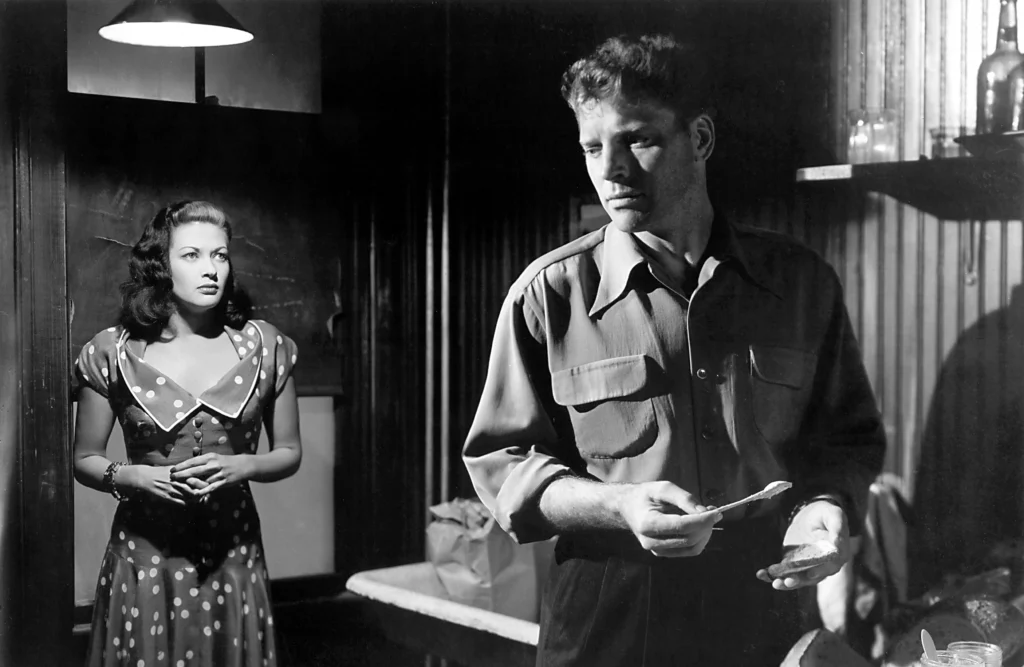Classic Film: Criss Cross
Written by Ian Thomas Malone, Posted in Blog, Movie Reviews, Pop Culture
Storytelling favors cohesion for obvious practical purposes. Audiences are not exactly wrong to crave narratives that fit neatly within the confines of the medium’s natural parameters. Noir as a genre prefers to bask in the messiness of the human experience. Adapted from the novel of the same name, the 1949 film Criss Cross explores the nature of a man forced to confront how detached his fantasies are from reality.
Steve Thompson (Burt Lancaster) returns to his old Los Angeles stomping ground hoping to rekindle a romance with his ex-wife Anna (Yvonne De Carlo). Steve’s storybook reunion with Anna at their old bar is quickly dashed by the reality of Anna’s present life, entwined with mobster Slim Dundee (Dan Duryea). Working as a driver for an armored truck company, Steve decides that the easiest way to win Anna back would naturally be to involve Slim and his goons in a robbery heist in order to double cross them, armored-trucks typically considered too dangerous to loot.
Director Robert Siodmak has a knack for building easy suspense. Lancaster is an easy muse for the noir genre, an expressive actor with a fantastic range for Steve’s uneasy pain, bringing to life the cluelessness of many attractive men to see their own responsibility in their life’s trajectory. Life hasn’t given Steve what he wants. He’s mostly to blame for that, a reality that noir illustrates with such bleak beauty.
The film at times does fall into the comfortable mechanics of heist plotting at the expense of its own characters that lie at the heart of the story. Siodmak keeps things interesting through his brisk 88-minute runtime, albeit making a bit of a mess with a third act that needs to cover too much ground. Noir is a forgiving genre for such dynamics, chaos finding an appropriate outlet in Steve’s delusions of grandeur.
Criss Cross basks in noir’s proclivity to deconstruct the flawed nature of man, powered by Lancaster’s innate charm finally that’s confronted with its own limitations. Plenty of men think they can do anything. Film likes to sell the idea that we can. Who likes to be told that we don’t have in our individual power the ability to change the course of not only our fates, but the entire orbit around us?
Noir can often be a bit of a downer, humanity’s grittiness exposed through the often-idealistic Hollywood lens. Criss Cross puts enough distance between its egomaniacal lead and the audience to provide some interesting glimmers of hope. The film possesses some truly inspired twists that cut against the grain of typical Hollywood fare, a reminder that some stories can hold power not through their reliability, but through the potent reality that we as individuals need not fall into the same traps. You can always change your fate, but it to have some humility along the journey.











